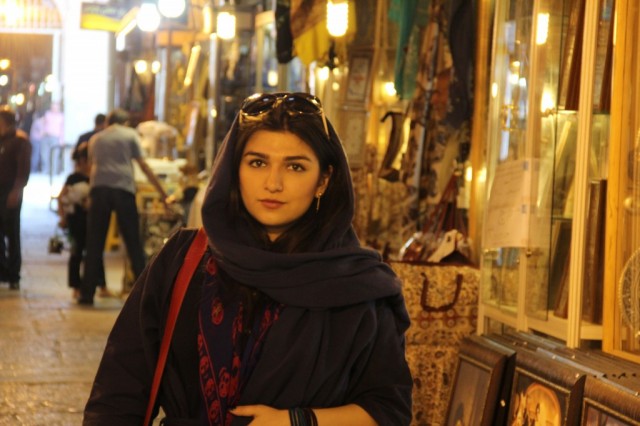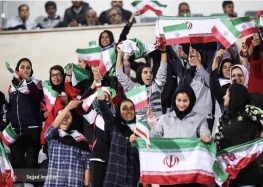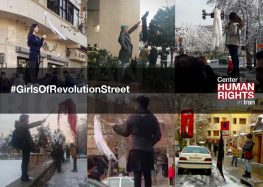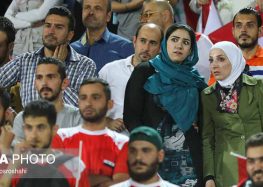Authorities Use National Security Charges to Punish Ghavami for Attending Sporting Event

“Ghoncheh was in no way connected to the opposition [groups]. My daughter was arrested during the events related to watching a volleyball game and all her interrogations were focused around this subject. After 50 days of detention, her interrogator asked me and Ghoncheh’s father to give him the names of the other individuals involved in the Volleyball Campaign and to tell him from where they received their orders,” Ghoncheh Ghavami’s mother, Sousan Moshtaghian told the Campaign.
On November 23, 2014, Ghoncheh Ghavami was released from prison after posting bail of one hundred million toman ($35,000). She was released after a lower court issued a one-year prison sentence and a two-year travel ban for “propaganda against the state” and other national security-related charges on November 22.
Ghavami was originally arrested on June 25, 2014 for attempting to attend a volleyball match at the Azadi stadium in Tehran. The authorities did not allow women to attend the event, and arrested Ghavami and the other women who had tried to attend the event, transferring them to Tehran’s Vozara Complex. They were later released after they signed a letter of recognizance and their personal belongings were confiscated. When Ghavami appeared at the Vozara Complex on the morning of June 30 to claim her confiscated belongings, she was arrested without any explanation. She then spent almost five months in “temporary detention.”
In an ongoing effort to deflect attention from her long detainment for attempting to attend a sports event and defend their actions, the Tehran Prosecutor’s Office made an announcement on November 18, stating that Ghavami’s case had been sent to the Revolutionary Courts on charges of “contacts with sedition elements [the Iranian state rhetoric for referring to the peaceful protests that followed the disputed 2009 presidential election in Iran], contacts with operatives and contact points for satellite [television] networks, such as the BBC Persian Service, and opposition [groups] abroad.”
The announcement claimed that on the day of Ghavami’s arrest, “numerous images and films related to elements of sedition” were discovered on her cell phone. It further indicates that it was made clear on June 29, 2014 through “the suspect’s statements and certain investigations” that Ghavami “had participated in propaganda activities against the state, and while having contacts with operatives and contact points of satellite [television] networks such as the BBC Persian Service and opposition [groups] abroad, she had been present in anti-state demonstrations.”
The prosecutor’s statement asserted it was intended “to shed light for public opinion” about Ghavami’s case, adding that “Establishing a case file pertaining to Ghoncheh Ghavami’s charges, has nothing to do with the said individual’s presence at the Azadi Sports Stadium and watching the volleyball games, and this individual was only prosecuted regarding the charges reflected in the case,” the prosecutor stated.
However, Sousan Moshtaghian, Ghoncheh Ghavami’s mother, told the International Campaign for Human Rights in Iran that the charges stated in the announcement are erroneous. “Ghoncheh was in no way connected to the opposition [groups]. My daughter was arrested during the events related to watching a volleyball game and all her interrogations were focused around this subject. After 50 days of detention, her interrogator asked me and Ghoncheh’s father to give him the names of the other individuals involved in the Volleyball Campaign and to tell him from where they received their orders.”
Regarding her daughter’s contact with the BBC Persian Service, Moshtaghian told the Campaign that “In 2013, when she was a student, she wrote one article as a guest blogger on BBC Persian’s website about the effects of economic sanctions on the lives of Iranian women. This was the only media work she did with this news network and she has never written any other content for anywhere else.”
It is common for individuals who challenge the authorities’ social and cultural norms and restrictions in Iran to be charged with vague national security-related crimes, and then prosecuted, convicted, and sentenced on such charges in judicial proceedings that lack any semblance of due process.






